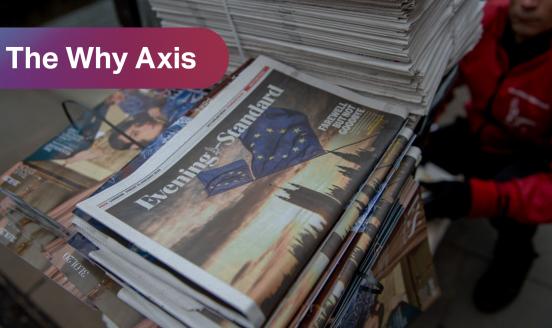The Global Accounting Make-or-Break
In his monthly column, Bruegel Senior Fellow Nicolas Véron analysis the challenges that lie ahead in realising a single global accounting language. He argues that the next 18 months are likely to determine the eventual success or failure of the project to have International Financial Reporting Standards (IFRS) adopted and applied around the world.
The report of the court-appointed examiner in Lehman Brothers’ US bankruptcy proceedings, issued on March 11, was a bombshell for the accounting profession, by revealing how the failing investment bank hid liabilities in the tens of billions with the use of accounting shenanigans. Despite alerts from whistleblowers, auditors from Ernst & Young appear to have neglected informing Lehman’s board about the scheme. Echoes of Enron, Worldcom and the fall of Arthur Andersen resonate loudly, even though it is impossible to predict at this stage how disruptive the consequences will be.
The Lehman story is a reminder that although accounting is most often dull, it can sometimes have dramatic impact. And arguably the most dramatic of recent accounting developments is currently at a critical juncture. The next 18 months are likely to determine whether the project to unify accounting standards worldwide, through universal adoption of International Financial Reporting Standards (IFRS), will succeed or fail.
The story of IFRS has been extraordinary. The organization that develops the standards, soon to be renamed the IFRS Foundation, started in 1973 as a modest private-sector project. But in the early 2000s, its standards were endorsed by the European Union and then by a growing number of countries around the world. Most large economies use them now or will soon. Some major exceptions remain, mainly Japan, Russia, Saudi Arabia – and the US.
The achievement of so many countries accepting a single set of standards has resulted from a combination of shrewd positioning, leadership, and sheer luck. IFRS standards meet the demand of investors to compare company accounts across the world, a need that has grown with financial globalization. In 2001, former US Federal Reserve chairman (and now White House adviser) Paul Volcker took the helm of the foundation, which hosts the International Accounting Standards Board (IASB), where IFRS are set. For a few years he gave the foundation stature and financial strength. Luck came from the fact that the Europeans were keen to adopt a common set of standards but unable to build one of their own because of their deep divisions. The impasse gave IFRS the perfect opportunity. The EU’s transition from national standards to IFRS in 2005 went well, and in 2007 the aim of global accounting harmonization seemed within reach, as the US authorities seemed ready to make decisive moves towards shifting to IFRS by the mid-2010s.
But the financial crisis changed these prospects, or perhaps it revealed weaknesses that had stayed hidden in previous years. IFRS came under furious criticism as major voices in the financial industry, relayed by many bank regulators and governments, accused them (though with scant evidence) of having aggravated the turmoil through the pro-cyclical effect of so-called fair value accounting. Under enormous political pressure to let the banks delay disclosure of bad news, the IASB in October 2008 had to adopt a standard on asset reclassification that results in lower-quality financial statements, which contributed to it losing the trust of former supporters in the investor community.
Simultaneously, the US took a more cautious approach toward IFRS, and the possibility of convergence between IFRS and US standards was dealt a big setback in July 2009, when the IASB and its US equivalent published diverging blueprints on the key issue of financial instruments accounting. Meanwhile, for the first time, senior European policymakers started to suggest that the EU should take back its accounting sovereignty, and set its own standards rather than entrust them to the IASB.
How serious is the current predicament? Some argue that the standard-setters should just stay the course. Following advice from the Big Four global audit networks, the G20 leaders last September agreed to push for completion of the current convergence program by mid-2011, an extremely tight deadline. David Tweedie, the IASB’s chair until that date, is pursuing convergence with the single-mindedness of Captain Ahab chasing Moby Dick. Maybe he will succeed. But it is more likely that the political tensions around IFRS will reach a breaking point, leaving the IFRS Foundation unable to prevent wide deviations from its standards in different economic regions. The backlash could even be such that the Foundation could not survive as an independent organization. The IFRS experiment could end in failure, even though the idea of a single global accounting language may later be revived in a different form.
Maybe the IFRS Foundation can enhance its chances of success by a leadership renewal at its top, by more clarity of purpose and accountability to IFRS users, or by more realism about what it can achieve given the political constraints. At stake is more than accounting: the IFRS are arguably the most advanced effort to build a seamlessly integrated market through a unified global code. If this effort fails, the consequences should be of concern not only of dour accountants, but as well to all those who care about the future of globalization.
Nicolas Véron is a Senior Fellow at Bruegel, and a Visiting Fellow at the Peterson Institute for International Economics



